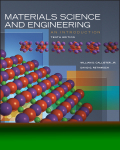
Materials Science And Engineering
10th Edition
ISBN: 9781119405498
Author: Callister, William D., Jr, RETHWISCH, David G., Jr., 1940- Author.
Publisher: Wiley,
expand_more
expand_more
format_list_bulleted
Question
Chapter 11, Problem 16QAP
To determine
To compare:
Sand, die, investment, lost-foam, and continuous casting techniques.
Expert Solution & Answer
Want to see the full answer?
Check out a sample textbook solution
Students have asked these similar questions
ARL040_AE_Kn_2of3...
Dor
Question 4.
A two-throw crankshaft has masses distributed as shown:
RAH
90 rpm
A
TRAV
B
Re
Rev
M₁ = 15kg; M₂
=
12kg
L = 950mm; 1, 350mm; 1₁ = 600mm; 0₁ = 90°; 02=0°; r₁ =
300mm; r250mm
The crankshaft is to be balanced by attaching masses at radii
of 300 mm and rotating in planes 150 mm outside the planes
of number one and number two cranks.
Determine the magnitude and angular position of the balance
masses.
Answer 4.
Resuelve el problema uno
Please solve this question step by step handwritten solution and do not use chat gpt or other ai tools thank you
Chapter 11 Solutions
Materials Science And Engineering
Ch. 11 - Prob. 1QAPCh. 11 - Prob. 2QAPCh. 11 - Prob. 3QAPCh. 11 - Prob. 5QAPCh. 11 - Prob. 6QAPCh. 11 - Prob. 7QAPCh. 11 - Prob. 8QAPCh. 11 - Prob. 9QAPCh. 11 - Prob. 10QAPCh. 11 - Prob. 11QAP
Ch. 11 - Prob. 12QAPCh. 11 - Prob. 13QAPCh. 11 - Prob. 14QAPCh. 11 - Prob. 15QAPCh. 11 - Prob. 16QAPCh. 11 - Prob. 17QAPCh. 11 - Prob. 18QAPCh. 11 - Prob. 19QAPCh. 11 - Prob. 20QAPCh. 11 - Prob. 23QAPCh. 11 - Prob. 24QAPCh. 11 - Prob. 25QAPCh. 11 - Prob. 26QAPCh. 11 - Prob. 27QAPCh. 11 - Prob. 30QAPCh. 11 - Prob. 31QAPCh. 11 - Prob. 2DPCh. 11 - Prob. 1FEQPCh. 11 - Prob. 2FEQPCh. 11 - Prob. 3FEQPCh. 11 - Prob. 4FEQPCh. 11 - Prob. 5FEQPCh. 11 - Prob. 6FEQP
Knowledge Booster
Similar questions
- FEAarrow_forwardA lagoon with volume 1,300 m3 has been receiving a steady flow of a non-conservative waste (rate constant= 0.19/day) at a rate of 80 m3/day for a long enough time to assume that steady-state conditions apply. The waste entering the lagoon has a concentration of 12 mg/L. A. What would be the concentration of pollutant in the effluent leaving the lagoon? B. If the input waste concentration suddenly increased to 110 mg/L, what would the concentration in the effluent be 8 days later?arrow_forwardFinite Element Analysisarrow_forward
- Please solve this questions step by step detailed and handwritten, do not use chat gpt or other ai tools thanks!arrow_forwardan experimental research station is constructed on a concrete slab floor. The heat loss from the floor slab is significant, given the cold environment, and is measured to be 5 kW. The edges of the floor slab are insulated with a 60 mm thickness of cellular glass insulation. The width of this insulation at the floor slab is 0.9 m. To avoid excessive fuel consumption, the station air temperature is maintained at a slightly cool temperature of 18ºC. The station is constructed in a square shape, to keep the surface area to volume ratio low; the horizontal dimensions of the floor of the station are 20 m by 20 m. The number of occupants in the research station varies between 5 and 20, depending on the research workload.a) Determine the design outdoor temperature that was used in designing the research station.b) If the floor dimensions of the station are changed to 15 m by 25 m, would the design outdoor temperature that was used in designing the research station from part (a) change? If so,…arrow_forwardI dont know how to solvearrow_forward
- Finite element analysisarrow_forwardThe BOD of a river just below a sewage outfall is 40 mg/L. At this point, the DO is at the saturated value of 9.8 mg/L. The deoxygenation rate coefficient is 0.22/day, and the reaeration rate coefficient is 0.9/day. The river is flowing at 10 miles/day. There are no other sources of BOD in the river. A. Find the critical distance downstream at which DO is at a minimum. B. Find the minimum DO.arrow_forwarda station is constructed on a concrete slab floor. The heat loss from the floor slab is significant, given the cold environment, and is measured to be 5 kW. The edges of the floor slab are insulated with a 60 mm thickness of cellular glass insulation. The width of this insulation at the floor slab is 0.9 m. To avoid excessive fuel consumption, the station air temperature is maintained at a slightly cool temperature of 18ºC. The station is constructed in a square shape, to keep the surface area to volume ratio low; the horizontal dimensions of the floor of the station are 20 m by 20 m. The number of occupants in the research station varies between 5 and 20, depending on the research workload.a) Determine the design outdoor temperature that was used in designing the research station.b) If the floor dimensions of the station are changed to 15 m by 25 m, would the design outdoor temperature that was used in designing the research station from part (a) change? If so, what would it be?…arrow_forward
- A lagoon with volume 1,300 m3 has been receiving a steady flow of a non-conservative waste (rate constant= 0.19/day) at a rate of 80 m3/day for a long enough time to assume that steady-state conditions apply. The waste entering the lagoon has a concentration of 12 mg/L. A. What would be the concentration of pollutant in the effluent leaving the lagoon? B. If the input waste concentration suddenly increased to 110 mg/L, what would the concentration in the effluent be 8 days later?arrow_forwardA lagoon with volume 1,300 m3 has been receiving a steady flow of a non-conservative waste (rate constant= 0.19/day) at a rate of 80 m3/day for a long enough time to assume that steady-state conditions apply. The waste entering the lagoon has a concentration of 12 mg/L. A. What would be the concentration of pollutant in the effluent leaving the lagoon? B. If the input waste concentration suddenly increased to 110 mg/L, what would the concentration in the effluent be 8 days later?arrow_forwardFinite Element Analysisarrow_forward
arrow_back_ios
SEE MORE QUESTIONS
arrow_forward_ios
Recommended textbooks for you
 MATLAB: An Introduction with ApplicationsEngineeringISBN:9781119256830Author:Amos GilatPublisher:John Wiley & Sons Inc
MATLAB: An Introduction with ApplicationsEngineeringISBN:9781119256830Author:Amos GilatPublisher:John Wiley & Sons Inc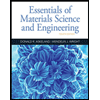 Essentials Of Materials Science And EngineeringEngineeringISBN:9781337385497Author:WRIGHT, Wendelin J.Publisher:Cengage,
Essentials Of Materials Science And EngineeringEngineeringISBN:9781337385497Author:WRIGHT, Wendelin J.Publisher:Cengage,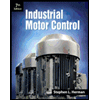 Industrial Motor ControlEngineeringISBN:9781133691808Author:Stephen HermanPublisher:Cengage Learning
Industrial Motor ControlEngineeringISBN:9781133691808Author:Stephen HermanPublisher:Cengage Learning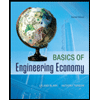 Basics Of Engineering EconomyEngineeringISBN:9780073376356Author:Leland Blank, Anthony TarquinPublisher:MCGRAW-HILL HIGHER EDUCATION
Basics Of Engineering EconomyEngineeringISBN:9780073376356Author:Leland Blank, Anthony TarquinPublisher:MCGRAW-HILL HIGHER EDUCATION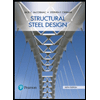 Structural Steel Design (6th Edition)EngineeringISBN:9780134589657Author:Jack C. McCormac, Stephen F. CsernakPublisher:PEARSON
Structural Steel Design (6th Edition)EngineeringISBN:9780134589657Author:Jack C. McCormac, Stephen F. CsernakPublisher:PEARSON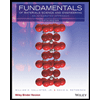 Fundamentals of Materials Science and Engineering...EngineeringISBN:9781119175483Author:William D. Callister Jr., David G. RethwischPublisher:WILEY
Fundamentals of Materials Science and Engineering...EngineeringISBN:9781119175483Author:William D. Callister Jr., David G. RethwischPublisher:WILEY

MATLAB: An Introduction with Applications
Engineering
ISBN:9781119256830
Author:Amos Gilat
Publisher:John Wiley & Sons Inc

Essentials Of Materials Science And Engineering
Engineering
ISBN:9781337385497
Author:WRIGHT, Wendelin J.
Publisher:Cengage,

Industrial Motor Control
Engineering
ISBN:9781133691808
Author:Stephen Herman
Publisher:Cengage Learning

Basics Of Engineering Economy
Engineering
ISBN:9780073376356
Author:Leland Blank, Anthony Tarquin
Publisher:MCGRAW-HILL HIGHER EDUCATION

Structural Steel Design (6th Edition)
Engineering
ISBN:9780134589657
Author:Jack C. McCormac, Stephen F. Csernak
Publisher:PEARSON

Fundamentals of Materials Science and Engineering...
Engineering
ISBN:9781119175483
Author:William D. Callister Jr., David G. Rethwisch
Publisher:WILEY